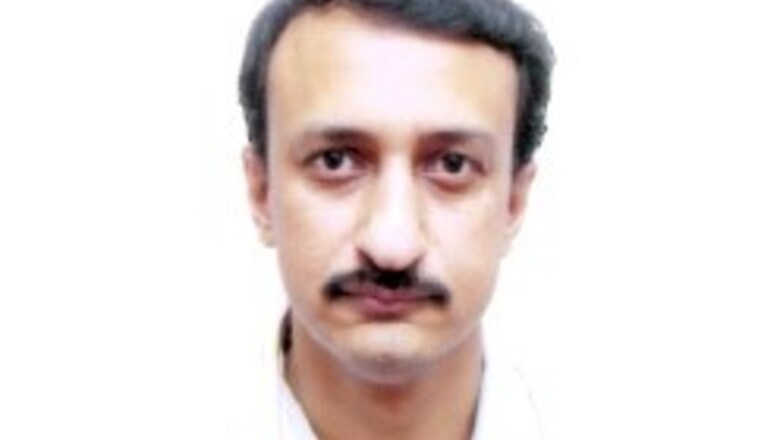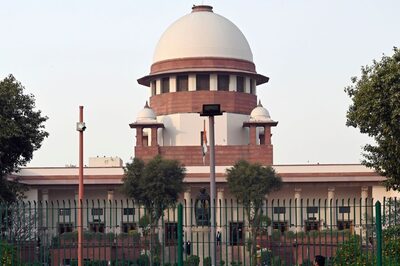
views
There is a growing expectation that the Finance Minister may provide some tax reliefs for aam admi (common man), as this will be the last Budget of the UPA government before the General Elections in 2009. Some of our wishes from the Finance Minister are as follows:
Taxing the savings
In 2005, the Finance Minister introduced a proposal to tax the savings in the year of withdrawal. A common man saves and invests in schemes such as provident fund, retirement plans, and infrastructure bonds, etc which are the only source of income after retirement.
Taxing the savings at the time of withdrawal or maturity would not only dampen the spirit of saving but would also reduce the funds available with individuals’ at the time of retirement.
Rationalising tax slabs
Looking at the present inflationary trend, people expect some relief in the form of rationalisation of tax slabs and tax rates. The maximum rate of tax is attracted on significantly higher income in other countries unlike India. Therefore, the maximum rate should be reduced to 25 per cent from the present 30 per cent and should be made applicable to income exceeding Rs 500,000.
Also, the basic exemption limit for individuals, which currently stands at Rs 110,000, may be raised to Rs 200,000 without any discrimination on the basis of sex or age.
Rationalisation of levy of surcharge on individuals
If an individual’s net income exceeds Rs 10 lakhs, a 10 per cent surcharge is levied. However, in case of companies, surcharge is levied only if the net income exceeds Rs1 crore. The corporate units are expected to contribute more towards the social cause than a common man. It only makes sense that surcharge on individuals either be abolished or at least the bar should be raised to maintain parity with the corporates.
Housing loans
At present, an individual gets a deduction upto Rs 150,000 for interest paid on funds borrowed for acquiring or constructing a house. The said limit of Rs 150,000 has remained unchanged since financial year 2001-02. Considering the rising interest rates as well as spiraling real estate prices, the present available limit of Rs 150,000 should be raised to Rs 300,000.
Standard deduction
The standard deduction, which was earlier available to the salaried individuals, should be re-introduced. This will help salaried persons who have no avenues for tax planning and are not entitled for any tax holiday benefits. By reintroducing such deduction, the Finance Minister can provide much needed support to the most compliant section of the society.
PAGE_BREAK
Medical expenses
At present, reimbursement of medical expenditure by an employer is exempt up to a limit of Rs15,000 per annum. Considering the inflation and increased cost of medical facilities, the limit needs to be increased appropriately.
Mobilizing savings
With the abolition of Section 80L and deduction for investments in various social security schemes being capped at Rs 100,000 under Section 80C, conventional sources of savings are becoming less attractive. In order to encourage people to save more and make investments in such schemes which are quite essential for the economic growth, the deduction under Section 80C needs to be increased to at least Rs 150,000.
Interest on refunds
An assessee is charged at 12 per cent per annum on the delayed payment of taxes whereas Government pays interest on refunds at 6per cent per annum only. In the last couple of years, interest rates have increased substantially and hence the rate of interest on refunds needs to be revised appropriately.
Tax return form
At present, the tax return forms for individuals require plethora of information to be filled in such as details of cash deposits, credit card payments, purchase of immovable property, purchase of units of mutual funds etc. It is duplication of work as the government gets these details through Annual Information Returns. An individual tax return form needs to be simple so as to encourage timely compliance.
Presumptive basis of taxation
The Government may consider widening the scope of presumptive taxation under Section 44AF to include various small scale businesses (having a turnover of less than Rs 40 lakhs) which can include manufacturing, tailors, beauty parlours, small restaurants, software ancillary units etc.
With the direct tax collections showing a significant growth, the Finance Minister can now definitely ease the pressure on the common man.
(The author is Associate Director -- Tax, Ernst & Young and has wide experience in corporate and individual tax matters relating to MNC and domestic clients in various industries such as oil and gas, mining, IT, civil aviation etc.)




















Comments
0 comment